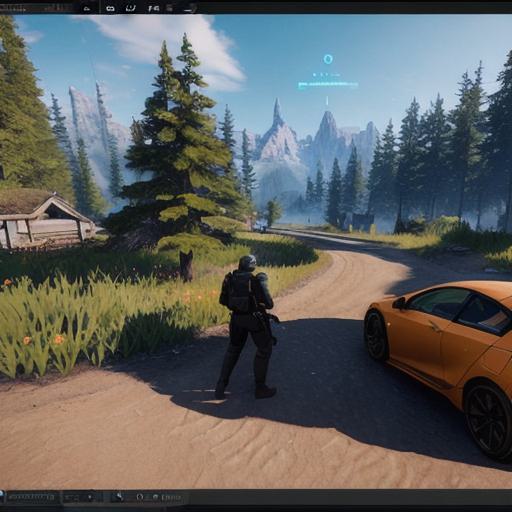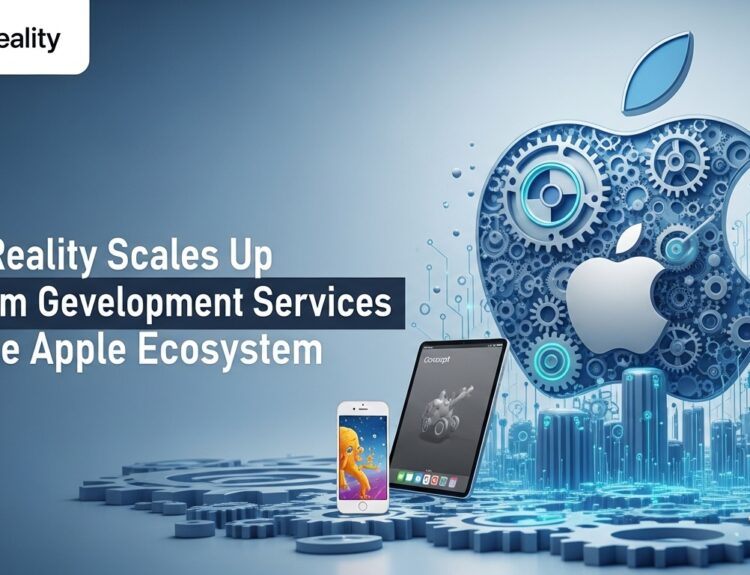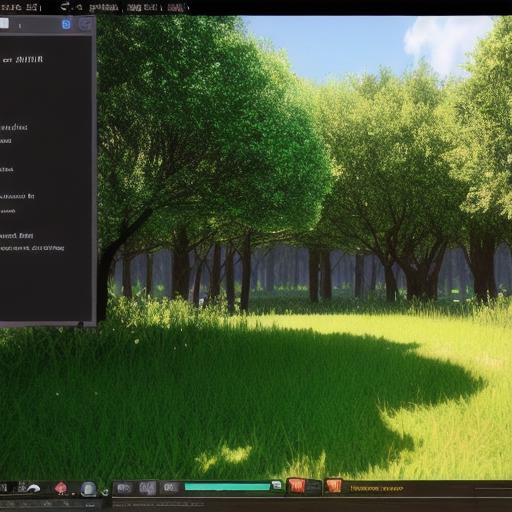In recent years, the use of artificial intelligence (AI) has revolutionized many industries, including game development. AI can help developers create more immersive and interactive games that are tailored to individual players’ preferences and abilities. In this guide, we will explore some of the best free AI tools available for game development and how they can be used to enhance your gaming experience.
- TensorFlow
TensorFlow is an open-source platform developed by Google that allows developers to create and train machine learning models. It has become one of the most popular AI tools in recent years, thanks to its flexibility, scalability, and ease of use. With TensorFlow, developers can create AI algorithms that learn from data and adapt to changing game conditions, making the gaming experience more engaging and challenging.
For example, developers can use TensorFlow to create a machine learning model that predicts the next move of an enemy in a real-time strategy game. The model can analyze past game data and learn patterns in the enemy’s behavior, allowing the player to anticipate their next move and plan accordingly.
- Unity ML-Agents
Unity ML-Agents is a powerful AI tool developed by Unity Technologies that allows developers to create intelligent agents for their games. An agent is an AI entity that can perceive its environment, make decisions, and take actions based on those decisions. With Unity ML-Agents, developers can create AI agents that can learn from game data and improve over time.
For example, developers can use Unity ML-Agents to create an AI agent for a puzzle game that can learn how to solve the puzzles more efficiently. The agent can analyze past game data and identify patterns in the puzzle-solving process, allowing it to develop a strategy that is more effective and efficient.
- Playfab
Playfab is a cloud-based game analytics and monetization platform that allows developers to track player behavior and engagement in their games. It provides valuable insights into how players interact with the game, such as which levels are the most popular, which features are most used, and which players are the most engaged. With Playfab, developers can use this data to make informed decisions about game design and monetization strategies.

For example, developers can use Playfab to analyze player behavior in a role-playing game and identify which quests are the most popular among players. This information can be used to create more engaging quests that keep players interested and coming back for more.
- Deep Learning 4j
Deep Learning 4j is an open-source platform that allows developers to build, train, and deploy deep learning models in Java. It provides a wide range of pre-built neural networks that can be used for various AI tasks, such as image recognition, natural language processing, and speech recognition. With Deep Learning 4j, developers can create AI algorithms that can learn from large amounts of data and make predictions based on that data.
For example, developers can use Deep Learning 4j to build an AI model that can predict the outcome of a sports game based on historical data and player statistics. The model can analyze past games and identify patterns in player performance, allowing it to make accurate predictions about future games.

- Amazon Web Services (AWS)
Amazon Web Services (AWS) is a cloud-based platform that provides a wide range of AI services, such as natural language processing, computer vision, and machine learning. With AWS, developers can build, train, and deploy AI models in the cloud, allowing them to scale their models up or down depending on demand.
For example, developers can use AWS to create an AI model that can predict which players are most likely to win a multiplayer game based on their past performance and behavior. The model can analyze past games and identify patterns in player performance, allowing it to make accurate predictions about future games.
Case Studies and Personal Experiences
One of the best ways to understand how AI tools can be used in game development is to look at real-world examples. In this section, we will explore some case studies and personal experiences that illustrate how these tools can enhance the gaming experience.
- The Elder Scrolls V: Skyrim – Enhanced by Machine Learning
The Elder Scrolls V: Skyrim is a popular role-playing game that has been around for over a decade. In recent years, developers at Bethesda have been experimenting with machine learning algorithms to enhance the game’s AI behavior and make it more realistic and engaging.
For example, they created an AI system that allows non-player characters (NPCs) to learn from the player’s actions and adapt their behavior accordingly. If the player is a good thief, NPC guards will become more suspicious of the player and become more difficult to sneak past. On the other hand, if the player is a kind adventurer, NPCs will be more friendly and helpful.
- Minecraft – Enhanced by Natural Language Processing
Minecraft is a popular sandbox game that allows players to create their own worlds and adventures. In recent years, developers at Microsoft have been experimenting with natural language processing (NLP) algorithms to enhance the game’s AI behavior and make it more intuitive for new players.
For example, they created an NLP system that can understand player commands and respond accordingly. If a player says "build a house," the game will automatically start building a house based on the player’s preferences and resources. This feature makes it easier for new players to get started with the game and reduces the learning curve.
- The Sims 4 – Enhanced by Deep Learning
The Sims 4 is a popular life simulation game that allows players to create their own virtual worlds and relationships. In recent years, developers at Electronic Arts have been experimenting with deep learning algorithms to enhance the game’s AI behavior and make it more realistic and engaging.
For example, they created a deep learning model that can predict how a character will react to different situations based on their past behavior and preferences. If a character is unhappy in their current relationship, the game will suggest ways for them to improve their relationship or find someone new. This feature makes the game more personalized and engaging for each player.
FAQs
Here are some frequently asked questions about AI tools for game development:
- What kind of games can be enhanced by AI?
AI tools can be used to enhance a wide range of games, including role-playing games, strategy games, sports games, puzzle games, and more.
- How do AI tools work?
AI tools use algorithms that are designed to learn from data and make predictions or decisions based on that data. Some AI tools are pre-built and can be used out of the box, while others require developers to build and train their own models.
- What is the difference between machine learning and deep learning?
Machine learning and deep learning are both subfields of AI, but they use different algorithms and techniques. Machine learning algorithms learn from data by finding patterns and making predictions based on those patterns. Deep learning algorithms use neural networks that are designed to mimic the way the human brain works, allowing them to learn more complex patterns and make more accurate predictions.
- Can I use AI tools if I don’t have a lot of programming experience?
Yes, many AI tools are designed to be user-friendly and do not require extensive programming experience. Some tools even come with pre-built models that can be used out of the box, making it easier for beginners to get started.
Summary
AI tools have the potential to revolutionize the way games are developed and played. By allowing developers to create more realistic and engaging AI behavior, these tools can make games more immersive and enjoyable for players. As the technology continues to evolve, we can expect to see even more innovative uses of AI in game development.



